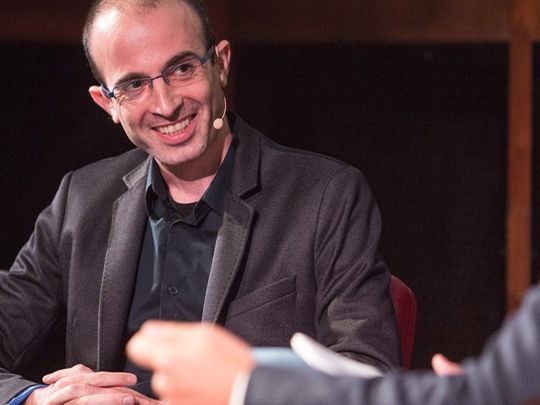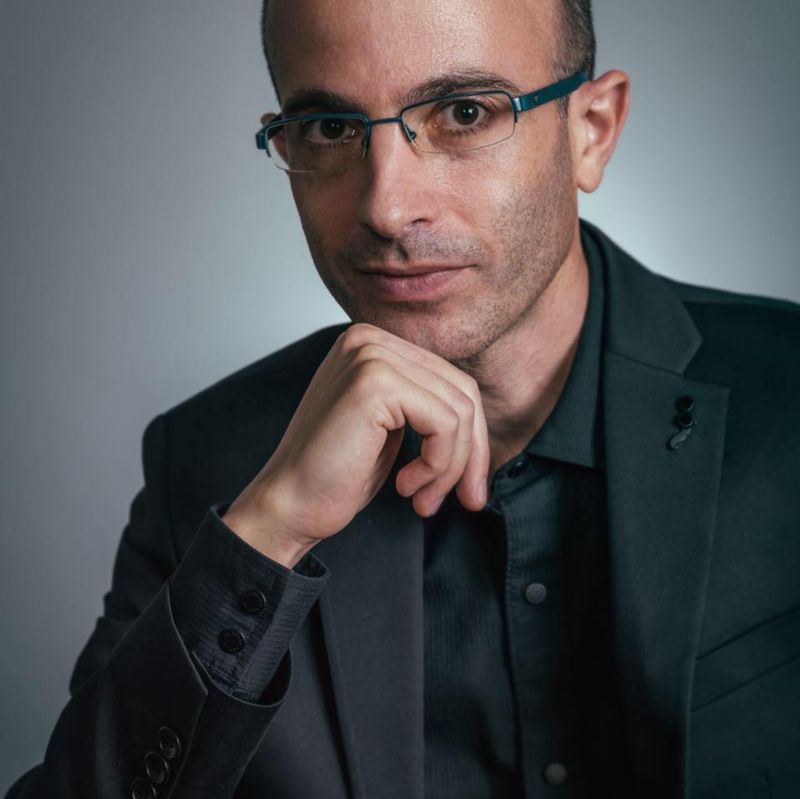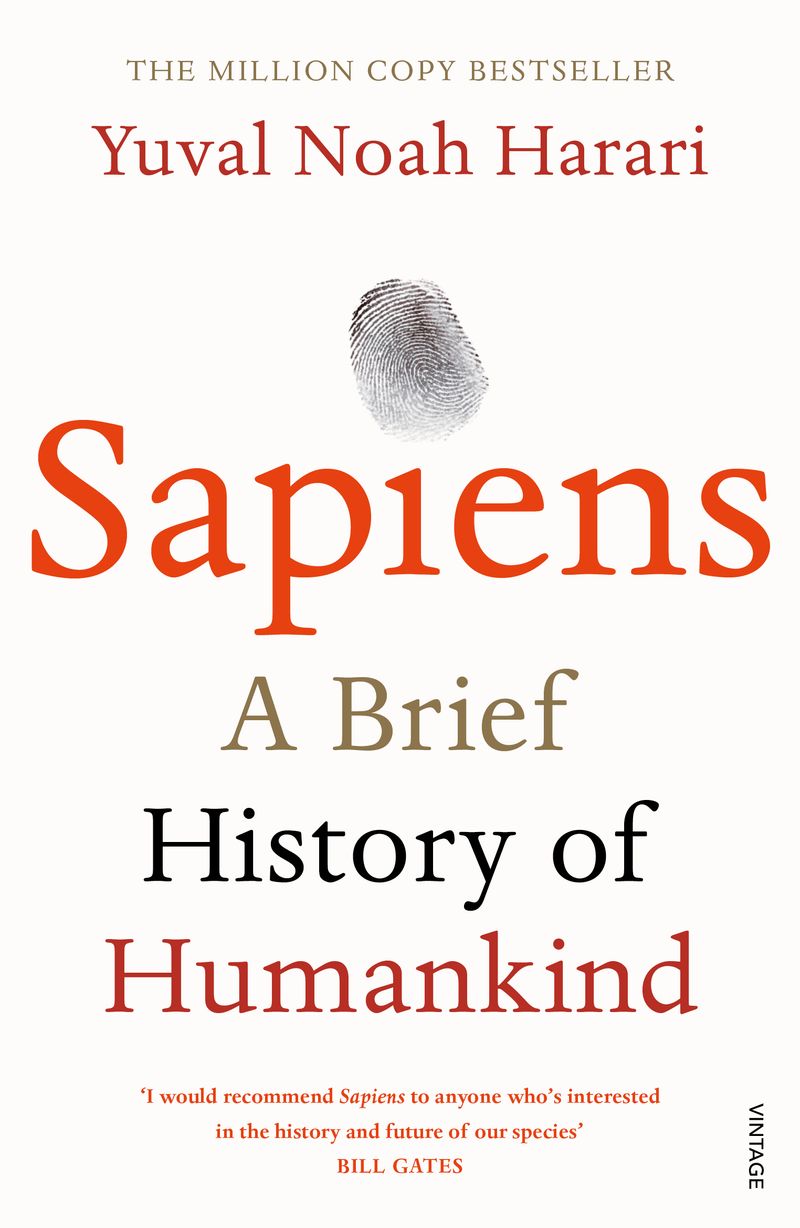
Abu Dhabi: Hailed as one of the smartest people on the planet, Yuval Noah Harari has taken the world by storm. The 43-year-old philosopher, thinker, historian and author has written three best-sellers: Sapiens, which examines the entire course of human history, Homo Deus, which speculates on where we might be heading as a post-human species, and 21 Lessons for the 21st Century, an exploration of the challenges that confront us at present.
Harari, a doctorate from Oxford, is a man of unconventional ideas. He thinks big and does so with a clarity that it is at once profound, exciting, and unsettling. In his works, Harari lays out a blueprint — that technological innovation and artificial intelligence (AI) are going to accelerate at a pace we have yet to fully comprehend. His solution: Humans need to develop an emotional flexibility that allows for our constant reinvention.
Gulf News caught up with the big ideas man. Here is what he told us about his sweeping philosophical work, mankind’s future, and the sheer complexity of modern society.
Mankind in 15 to 20 years from now
Three biggest issues facing humankind presently are nuclear war, ecological collapse and technological disruption, especially the rise of AI and biotechnology (which are going to completely disrupt the economy, political systems and perhaps even human body and mind). Of these, the first two — nuclear war and ecological collapse can be prevented.
Technological disruption, on the other hand, is something that we cannot and should not prevent. It’s really the default mode for humanity now. We are going to experience a huge technological disruption in the years ahead. Humans need to manage it correctly and in a way that doesn’t ruin our civilisation, as we know it.
Threat of big data and algorithms
Big data is a threat to all. Maybe the most obvious is the threat to human freedom. It could result in the creation of new kinds of dictatorships — digital dictatorships, which are characterised by the ability to monitor everybody all the time. It was never possible before even in the most extreme dictatorships like the erstwhile USSR and Nazi Germany. They didn’t have the necessary tools. You couldn’t possibly put a secret agent to follow every person.
Now with smart cameras and biometric sensors, you can collect data on everybody all the time much more easily. With AI and algorithms, you can analyse this data in real time. So, it has become possible to create a kind of total surveillance regime. This is not some future science fiction scenario. It’s already happening.
Phenomenon of fake news
Fake news is not unprecedented in itself because propaganda and lies have always been part of human history. The Soviet propaganda machine, for instance, had a newspaper called Pravda. You know Pravda means truth but everybody knew that the last thing you found in Pravda was the truth.
Fake news is not new. What is new is the technology to do it. In the past few people had access to the means of publishing views. Now everybody can publish their views and their stories. It has become very easy. Once that is settled, the problem moves to attention. You can publish your opinion but there is so much competition for ‘attention of people’ that a big battle for attention ensues.
Unfortunately, the easiest way to grab people’s attention is by pressing the fear button. If you have two stories — and one offers a moderate and balanced view of facts and the other story offers a radicalised version (which causes people to be very afraid or hate some groups), the story that causes hate and fear is much more likely to grab your attention.
This simple battle for attention causes a constant process of radicalisation. Everybody wants to have more and more extreme headlines and stories — just to grab people’s attention. This destroys our ability to have a reasoned discussion.
I don’t think AI would completely destroy all jobs. Some jobs will disappear, while other new jobs would be created. The next question is whether you have the education to fill the new jobs? There may be no need for textile workers but you do need more software engineers. However, it isn’t easy to take a 40-year-old unemployed textile worker in Bangladesh and turn her overnight into a software engineer.

Rise of machines
All humans will not have the same future. Some countries will become extremely wealthy because of AI. The main thing about AI is inequality. It will have a different impact on different classes and different countries.
While countries like the US and China will benefit tremendously from AI, others might completely collapse in the future. Just think about Bangladesh, a nation with a huge textile industry. In the years ahead, it will be cheaper to produce a shirt in New York rather than Dhaka. Bangladeshis would need new jobs.
However, I don’t think AI would completely destroy all jobs. Some jobs will disappear, while other new jobs would be created. The next question is whether you have the education to fill the new jobs? There may be no need for textile workers but you do need more software engineers. However, it isn’t easy to take a 40-year-old unemployed textile worker in Bangladesh and turn her overnight into a software engineer.
So, these are the two issues. Both in terms of class and in terms of country, there will be winners and losers and unless we take action to create a global safety net, some countries could completely collapse and shock waves of immigrants will impact the whole world.
Therefore, we need a global collaboration. We need to also think: how do we help the countries which are left behind in the AI race? How do you help them not to be completely bankrupt by the automation revolution?

Hacking humans
Currently there is an intense competition for hacking humans. Various organisations now understand us better than we understand ourselves. They can easily manipulate us and we can’t do a thing about it. This is because (based on our browsing habits) they understand how our brains work and what buttons to press to change our mind.
To retain our freedoms, humans need to understand themselves better. There are different ways to do it. We can disconnect from technology from time to time.
To every reader I say this: See what works best for you and invest time and energy in it because you need to protect your self against this system. You can’t control the world but if you know yourself better, that is ultimately your best protection.
Award-winning writer and thinker
Harari was born in 1976 (Haifa) and studied medieval and military history. A PhD from Jesus College, Oxford, he is the two-time recipient of the prestigious Polonsky Prize for Creativity and Originality (2009 and 2012). Harari’s works, especially his first book Sapiens, is regularly featured among the best 100 books of the 21st century.











